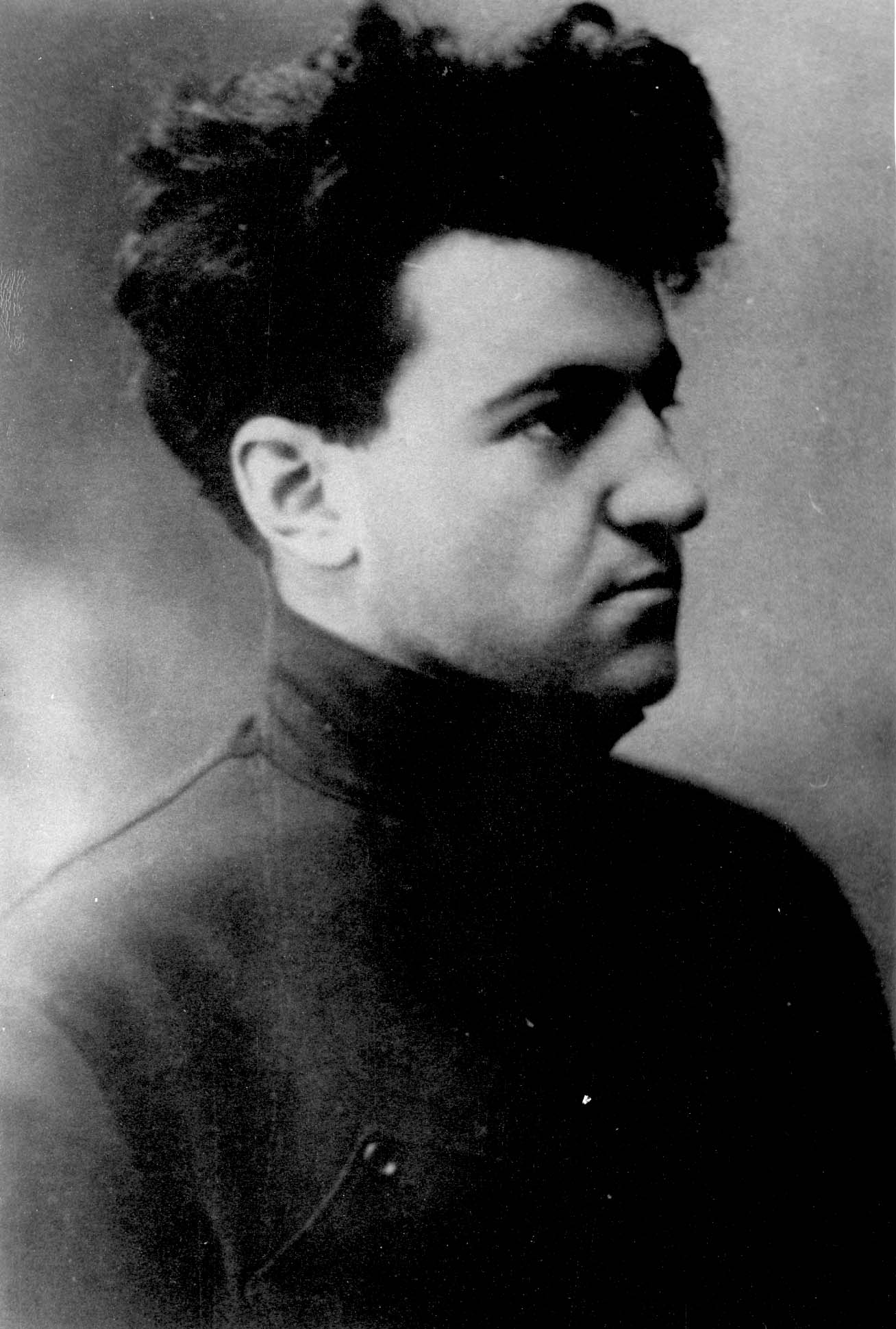Mikhail Gurevich was born in 1904 in Smolensk. His father was an accountant. Mikhail's childhood was spent in Tbilisi. After he graduated from school and, then, a technical school in 1922, he went to study at the Forestry School in Moscow. He loved to draw from his youth. Leaving the Institute during his second year there, he enrolled at the VKhUTEMAS, The Higher Art and Technical Studios, from which he graduated in 1930. He studied with the well known Soviet artists David Shterenberg, who often included Jewish themes in his work. After graduation, Gurevich traveled a great deal around the Soviet Union. His works were shown at exhibitions of Soviet art abroad – in New York, Amsterdam, Vienna, Berlin, Paris, Zurich, and Tokyo. His paintings were mainly devoted to cityscapes and Soviet themes.
During the first days of the war he volunteered and then served as a military correspondent. His articles and illustrations were published both in the front-line and national press. He also wrote brief sketches for amateur dramatic performances in the army and acted in them.
In 1942 he began studying in an artillery school in Moscow. After graduating with the rank of junior lieutenant, he became commander of a platoon of an anti-tank battery of 45-millimeter canons. From January 1943 he fought in the artillery on the Southern, Voronezh, and Kalinin Fronts.
On September 13, 1943 military operations were stepped up near the town of Demidov in the Smolensk region. For several days Gurevich's platoon was engaged in battle to repel the enemy. Four days later, during enemy counterattack, all the other members of his platoon were killed. With two canons Gurevich continued to fire at the advancing enemy. Then he threw grenades and fired his automatic weapon at them. He died after he was wounded eight times. On June 4, 1944 he was posthumously honored as a Hero of the Soviet Union for his role in that battle.
On May 8, 1945 the Moscow Union of Artists held an evening in his memory. (The same year an exhibition of his works was held, also in Moscow.) Among those present at the memorial evening, along with artists and military figures, were representatives of the Jewish Anti-fascist Committee - its chairman, the actor and director of the Moscow Jewish State Theater, Solomon Mikhoels, its secretary, Shakhno Epshtein, and the Yiddish poets Itzik Fefer, Leyb Kvitko, and Shmuel Galkin - as well as Gurevich's mother.
Speaking at the memorial meeting, David Shteinberg said
"Mikhail Gurevich was a Jewish artist. His work was full of real Jewish dreaminess and that lyric quality which is [also] characteristic of the work of Levitan. The landscapes of Gurevich are deeply Jewish. They embody the lyrical spirit of a dreamer."
On the same occasion Mikhoels said
"I came here as a Soviet citizen who is alive thanks to the deeds of Mikhail Gurevich… who died the death of the brave. He was a Hero of the Soviet Union. Mikhail Gurevich was an adornment to his people. His death ennobled our souls and strengthened our spirit. Glorious and invincible is that people who have raised such patriots of our Fatherland. It is an honor to a Jewish mother to have raised such a son…."
From: GARF 8114-1-30, copy YVA JM/26082.







